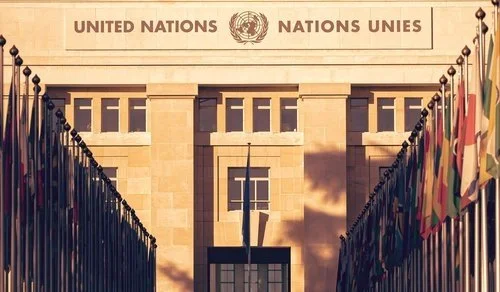Kenya’s UN Speech: An Insightful Critique of Russia’s Invasion of Ukraine
Photo license by Unsplashed
ZACH FOTIADIS: Among the most compelling international responses to Russia’s recent invasion of the Donbas was the Kenyan Ambassador to the United Nations’ speech in official condemnation of the move. Invoking the legacy of colonialism, the Kenyan delegation excoriated President Putin for his exploitation of ethnic tensions and irredentist visions to justify his bombardment of a sovereign power. Recognizing the majority Russian-speaking eastern corridor of Ukraine as the independent “people’s republics” of Donetsk and Luhansk, in addition to deploying military forces to assert their legitimacy, were dangerous acts of backward-looking imperialism shrouded in the guise of nationalistic restoration. Africa is a continent that is no stranger to the incongruity between arbitrary state borders and ethnic/cultural aspirations, a point Ambassador Kimani emphasized in no uncertain terms. However, he highlighted unequivocally that giving in to the temptation of unifying nations by impinging upon states will only plunge the world into a potentially dark place of geopolitical anarchy.
Warning of the dangers of stoking “the embers of dead empire,” the central theme of Ambassador Kimani’s critique involves juxtaposing the responses of Russia and Africa generally to irredentist urges. The contemporary political nature of the African continent is one which bears heavy scars of European colonialism. The borders of nearly all of its 54 sovereign states are little more than artificial postcolonial creations drawn by the former imperial powers without regard for innumerable linguistic, sociocultural, religious, and/or ethnic nationalities spanning millennia. Such haphazardly constructed borders pitted entirely distinct peoples once separated by geography and time into a single territory, as well as cleaved entire populations united for centuries into discrete states. Africa has endured a number of civil wars, interstate incursions and internal insurrections as a result, most of which have spawned from the politically entrancing force of irredentism. Kenya itself is no stranger to ethnically-based conflict; the 1970s Shifta War and its ongoing border dispute with Somalia largely stem from demographic displacement. In his speech before the Security Council, however, Kimani stressed the general adherence to the norm of intercontinental cooperation and respect for foreign sovereignty observed by member states of the Organization of African Unity. Despite dissatisfaction with the circumstances they inherited, they have attempted to move on and forge a new political vision for the future centered around a socioeconomic and institutional premise as opposed to demagogic appeals to ethnic nationalism.
Africa’s attempts at intercontinental reconciliation stand in stark contrast to Putin’s behavior over the past several years with respect to Russia’s national identity and the treatment of its neighbors. State-sponsored Russian nationalism has reached unprecedented highs since the fall of the Soviet Union, with the president entertaining revisionist accounts of the Kremlin’s past (including of Stalin, whose image has been undergoing a popular revival), restoring a significant amount of Soviet and Tsarist insignia/symbolism, and isolating the Russian Orthodox Church from the jurisdiction of the ecumenical patriarch. Exploiting rank appeals to supposed Russian glory has translated into jingoist foreign policy attitudes, as can be observed with Moscow’s use of force in Georgia, Crimea, and now the Donbas. As Kimani implies, such actions are bound to undermine international norms with regards to the legitimacy of employing military force in the name of irredentism, only raising the stakes regarding the African security dilemma.
Because of the ethnically stratified nature of African statecraft described earlier, countries like Kenya have been put in an increasingly compromised position as a result of Putin’s invasion. The relative trajectory of recognition and cooperation chosen by many African states in the midst of irredentist temptations may become unstable if norms on the subject shift. Therefore, the unique perspective provided in Ambassador Kimani’s speech was likely more than simply moral grandstanding. Kenya’s decision to emphasize the importance of maintaining the international standard and observing the UN Charter with reference to ethnic claims in foreign policy may very well be crucial to its survival as a state. The potential for an inflammation of sectarian tensions and/or interstate warfare across Africa have escalated to significant proportions, a prospect most African leaders, particularly those of democracies, desperately hope to avoid. While a mere speech by a Third World state may be perceived as little more than an exercise of ineffectual soft power, it is possibly the best tool at their disposal for preserving some semblance of geopolitical stability. Kimani’s utilization of historical analogy, comparing Africa’s respect for state sovereignty with Russia’s lack thereof amidst ethnic antagonism, seeks to inhibit a new norm of irredentist imperialism from achieving currency.
Zach Fotiadis is a staff writer for On the Record originally from Miami, Florida. He is currently a sophomore in the School of Foreign Service studying International History with a minor in government.

